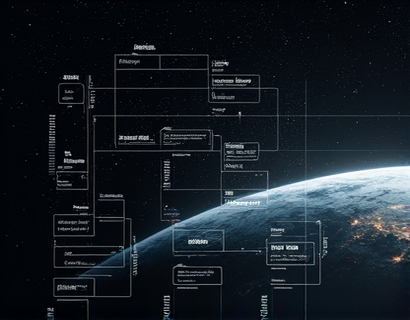Temple Management Software: Revolutionizing Administrative Efficiency and Community Engagement for Religious Institutions
In the modern era, religious institutions such as temples face unique challenges in managing their day-to-day operations while maintaining their spiritual focus. The integration of specialized software designed for temples has emerged as a transformative solution, streamlining administrative tasks, enhancing communication, and boosting community engagement. This article delves into the multifaceted benefits of temple management software, highlighting how it enables religious institutions to concentrate on their core missions with improved efficiency and productivity.
The Need for Specialized Software in Temples
Temples are not just places of worship but also centers of community, education, and administration. The responsibilities of temple management extend far beyond spiritual activities to include financial management, event planning, volunteer coordination, and community outreach. Traditional methods of managing these tasks are often manual, time-consuming, and prone to errors. Specialized software addresses these challenges by providing a comprehensive platform that automates routine tasks, centralizes data, and facilitates seamless communication among stakeholders.
Streamlining Administrative Tasks
One of the primary benefits of temple management software is the significant reduction in administrative workload. The software offers features such as automated scheduling for services, rituals, and events, eliminating the need for manual calendar management. Financial management is another critical area where the software excels. It allows for easy tracking of donations, expenses, and budgeting, ensuring transparency and accountability. Additionally, the software can manage membership records, track volunteer hours, and handle inventory for temple supplies, all of which contribute to a more organized and efficient operation.
Enhancing Communication
Effective communication is vital for the smooth functioning of any religious institution. Temple management software provides a robust communication framework that connects the temple administration with members and the broader community. Features such as newsletters, announcements, and bulletin boards keep everyone informed about upcoming events, important notices, and spiritual teachings. The software can also facilitate two-way communication through comment sections or feedback forms, allowing community members to voice their thoughts and suggestions directly to the temple administration.
Boosting Community Engagement
Community engagement is a cornerstone of temple activities, and temple management software plays a crucial role in enhancing this aspect. The platform can manage volunteer sign-ups and track participation in various programs and events, making it easier to recognize and reward volunteers. Social media integration allows temples to share their activities and achievements with a wider audience, fostering a sense of community beyond the physical premises. Furthermore, the software can support online prayer requests, virtual classes, and digital donations, catering to the growing number of tech-savvy worshippers.
Improving Spiritual Focus
By automating mundane tasks and providing efficient tools for management, temple management software allows temple leaders and staff to dedicate more time to spiritual activities. The reduction in administrative burdens means that more time can be spent on teaching, counseling, and other spiritual endeavors. This shift not only enhances the quality of spiritual services but also deepens the connection between the temple and its community. The software's ability to streamline operations ensures that the temple can maintain its spiritual mission without being hindered by logistical challenges.
Customization and Flexibility
Every temple is unique, with its own set of traditions, practices, and needs. Temple management software is designed to be highly customizable, allowing institutions to tailor the platform to fit their specific requirements. Whether it's adding custom fields for specific events, creating tailored reports, or integrating with existing systems, the software offers the flexibility needed to adapt to diverse temple environments. This customization ensures that the software is not just a one-size-fits-all solution but a versatile tool that enhances the temple's operations in a meaningful way.
Data Security and Privacy
With the increasing reliance on digital platforms, data security and privacy have become paramount concerns for religious institutions. Temple management software providers prioritize the security of sensitive information, implementing robust encryption methods and regular security audits. Access controls ensure that only authorized personnel can view or modify specific data, maintaining the confidentiality and integrity of the information. This focus on security provides peace of mind, allowing temples to use the software without worrying about potential data breaches.
Case Studies and Success Stories
Numerous temples across different regions have successfully implemented temple management software, reaping significant benefits. For instance, a temple in a bustling urban area reported a 30% reduction in administrative errors and a 40% increase in volunteer engagement after adopting the software. Another temple in a rural setting noted improved financial transparency and better event attendance tracking, leading to more effective community outreach. These success stories underscore the practical impact of the software in enhancing operational efficiency and community involvement.
Future Trends in Temple Management Software
The landscape of temple management software is continually evolving, with new features and integrations being developed to meet the changing needs of religious institutions. Artificial intelligence and machine learning are being explored to provide predictive analytics for event planning and resource allocation. Mobile applications are becoming more prevalent, allowing members to access temple services and information on-the-go. Virtual reality and augmented reality technologies are also being considered to enhance spiritual experiences and educational programs. These advancements promise to further revolutionize the way temples manage their operations and engage with their communities.
Conclusion
Temple management software represents a significant leap forward in the way religious institutions manage their daily activities and engage with their communities. By streamlining administrative tasks, enhancing communication, and boosting community engagement, the software enables temples to focus more on their spiritual missions. The customizable and secure nature of these platforms ensures that they can be effectively integrated into any temple setting, providing a valuable tool for modern temple management. As technology continues to advance, the potential for even greater improvements in temple operations and community engagement is vast, promising a brighter and more connected future for religious institutions.










































